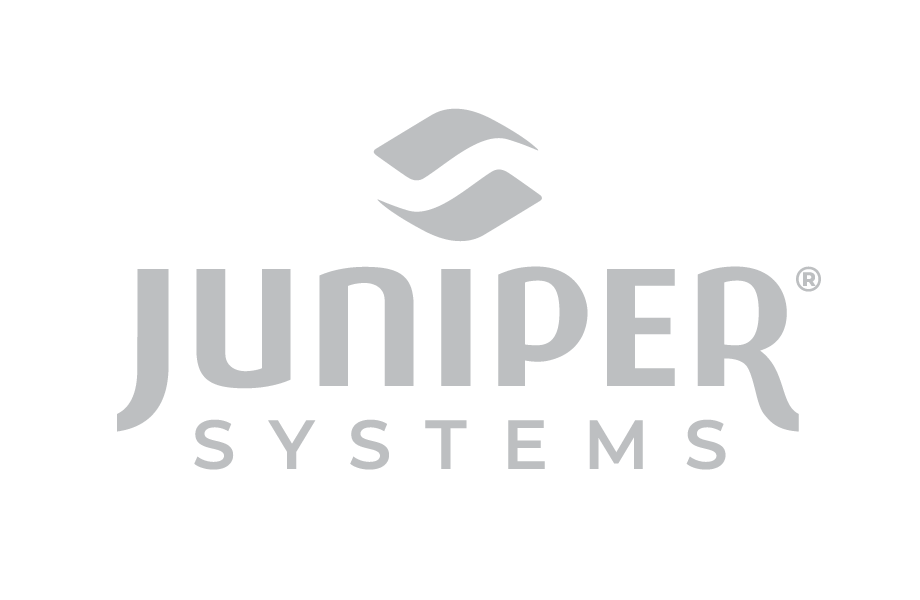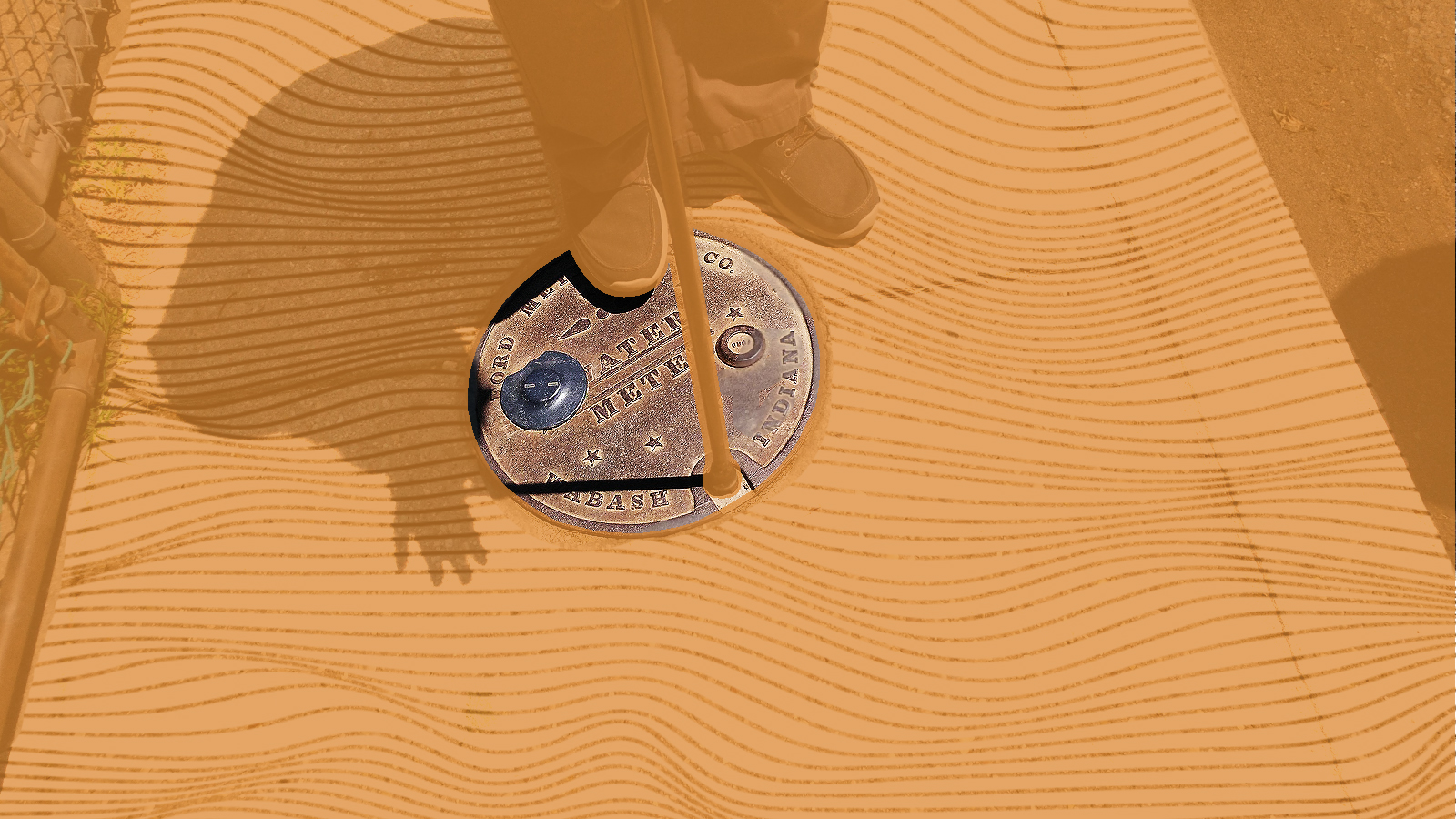
In Anne Arundel County, Maryland, the Bureau of Utilities sends technicians in crew cab trucks to coast the streets. Their job is to read hundreds of culinary water meters each day.
The work of reading water meters, though, has gotten a lot easier.
It sounds a bit like a Geiger Counter detecting radiation on a sunny June day as Juniper Systems’ sales application engineer Cody Draper sits squeezed between Brian Shirk, the chief information officer at LB Water, and the truck window. One by one, as the truck drives through a dense urban neighborhood, little green checkmarks appear on the Allegro 2 Rugged Handheld’s screen accompanied by an electronic chirp.
Juniper Systems’ Allegro 2 is running a Sensus water meter reading software. The system uses a built-in radio receiver and an additional external receiver connected through Bluetooth® to reach underground radios attached to each home’s individual water meter. The meters, tucked under thick steel manhole covers and concrete, send usage data to the handheld computer inside the cab of the truck as it passes dozens of the county’s more than 204,000 homes.
“The job has changed from a technician spending a couple minutes to read and record the data from each meter to spending just a couple seconds per meter,” Draper said. “Before powerful handheld computers and underground radios changed the system, technicians would walk to every water meter, remove every manhole cover, wipe off the dirt, and record the data.”
Ryan Pierson, Juniper Systems’ utilities account manager, echoed the sentiment.
“It’s a big improvement over the way they used to do it,” he said. “They’ve automated meter reading.”
Before automatic meter reading, or AMR, systems began to proliferate around the United States in the early 2000s, utilities would read meters sporadically, often guessing usage for billings between readings. Now, Pierson said, utilities read the water meters monthly.
“They can drive a city in two or three days,” Pierson said. “That just wasn’t possible before.”
Juniper Systems joined Sensus, LB Water, and the Bureau of Utilities in Maryland to investigate a technician complaint. Homes along the dense urban route, the area technician told his supervisor, were not being read by the water meter reading system.
“As we drove down the street the Allegro 2 would beep every time another meter was read,” Draper said. “The software would notify you when another meter was read. It would show you how many were left and how many were completed.”

This, too, might change as the rapid integration of internet technology into utility functions changes how the industry reads water meters, gas meters, and more.
Rugged handhelds and tablets could increasingly be used to assess and address water meter maintenance in the future, rather than help read meters, Pierson said. “Utilities are moving to adopt a cellular water meter reading system so they can read the meters from their offices continually,” he added.
“They’re going to put it on their trucks seats on the ground – and drop them in water. These are the perfect devices for utility services.”
Ryan Pierson, Juniper Systems’ utilities account manager
Utilities, counties, and cities are looking toward the internet of things, a term used to describe physical devices connected and controlled from the internet. Water meters, gas meters, light poles, and stoplights could soon be connected, controlled, and monitored at utility operation centers with the internet using cellular data and Wi-Fi.
“With changing technology and the integration of smart networks, there will be a lot more maintenance and a lot more meter inspecting,” Pierson said. “We can expect new and changing opportunities, possibly within the next five years.”
Kansas City, Missouri calls itself the “world’s most connected smart city.” It currently offers free public Wi-Fi around city centers and publishes visualization of available parking spots, pedestrian hot spots, and the location of its streetcars. The city has plans to connect sensors to municipal functions. It says this will “deliver basic services more efficiently and will attract economic development and entrepreneurs,” according to the city website.
Pierson said wherever the industry goes rugged tablets and handheld computers will still be a necessity.
“Two things are really important for these utilities: good screen visibility and strong battery life,” he said. “Juniper Systems builds powerful handheld computers that meet both of those expectations, unlike other manufacturers. Our screens and batteries are better than anybody else.”
“Of course, being ultra-rugged allows technicians to work any time of the day, any time of the year, and in the cold and the wet,” he added. “They’re going to put it on their trucks seats on the ground – and drop them in water. These are the perfect devices for utility services.”
The group stops the truck. They walk to the water meter to investigate and learn the problem wasn’t the Allegro 2 or the software, but a maintenance issue. This meter has a broken internal radio. As the crew makes more stops, they find other infrastructure maintenance issues: a missing internal radio or a disconnected wire.
Back in the cab of the truck, the system ticks off meters, occasionally skipping a group. The system reads around 75 percent of the meters on the route – much higher than the technician complaint suggested.
Instead of reading meters, the missed water meters were indicating issues that the crew flagged for future maintenance.
“In most cases, it was a missing radio at the meter, a disconnected radio or a disconnected antenna,” Draper said. “It was basically a problem inside the box in the ground – not with our handhelds.”
Juniper Systems’ rugged handheld tablets and mobile computers pair with Sensus software to provide case-specific meter solutions. Individualized meter solutions collect data, record GPS locations, and more.
To learn more about utility solutions from Juniper Systems, click here or email us at sales@junipersys.com

